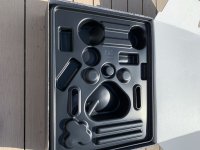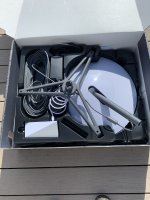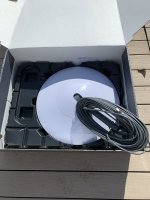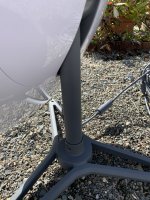FWIW: You might want to switch to 5GHz; 2.4GHz is never going to be very fast. The downside is distance. Even 15' distance from the router/access point can cause a significant drop off in speed as do walls. For high speeds, we all probably need a few more access points or mesh networks. I know that I do. I may be "old school", but I try to have everything wired that can be, except for things like phones and tablets. The performance difference is huge. Granted on DSL and going out to the outside world, you would never notice, but for local items like backups to network attached storage, it makes a big difference. With Starlink, you could be leaving quite a bit of performance on the table.
There is also the issue of double
NAT; if you are using your router and the Starlink router, it is a good idea to turn off the DHCP service on your router, and make sure that your router knows the gateway is the Starlink router. Having double NAT will definitely slow you down.
All the best,
Peter



